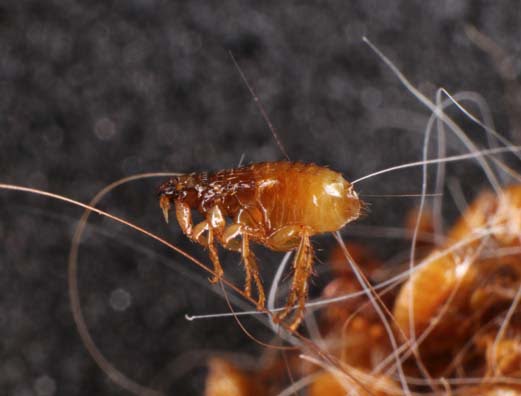Pupated fleas can remain dormant for up to two years in their cocoon, where they wait to detect nearby heat or vibrations which causes them to emerge and seek out a potential host.
These cocoons are what make fleas such a difficult pest to get rid of. They are incredibly tough and coated with a sticky surface which collects dirt, dust and hair making them perfectly camouflaged soon after they’ve been woven.
Worst of all, insecticides can’t penetrate them. Even if you fill every room in your house with so much spray you can’t see, the fleas will continue to rest safely in their cocoons.
The way around this is regular, thorough vacuuming. Vacuuming can trick fleas into emerging from their cocoons, at which point they are vulnerable to insecticides. Your routine should be to hoover, spray, hoover, spray every other day for around a month.
Remember that fleas and flea eggs will survive the vacuuming so it’s very important that you empty your vacuum cleaner after every use into an outside bin otherwise you might accidentally spread the fleas around your home.
If that sounds like a lot of work, well, it is. Fleas are one of the most stubborn pests you can encounter and to get rid of them entirely you need to be thorough. Unless you have the time to dedicate to this flea-busting schedule, you’re better off seeking help from professional exterminators.
Even if you get a professional flea treatment, we will still need you to vacuum between our visits and to continue doing so after we have completed treatment in order to maximise the number of fleas exposed to insecticides.
If you want more advice on how to get rid of fleas or would like to book professional flea treatment, call us now or request your call back to get in touch.












